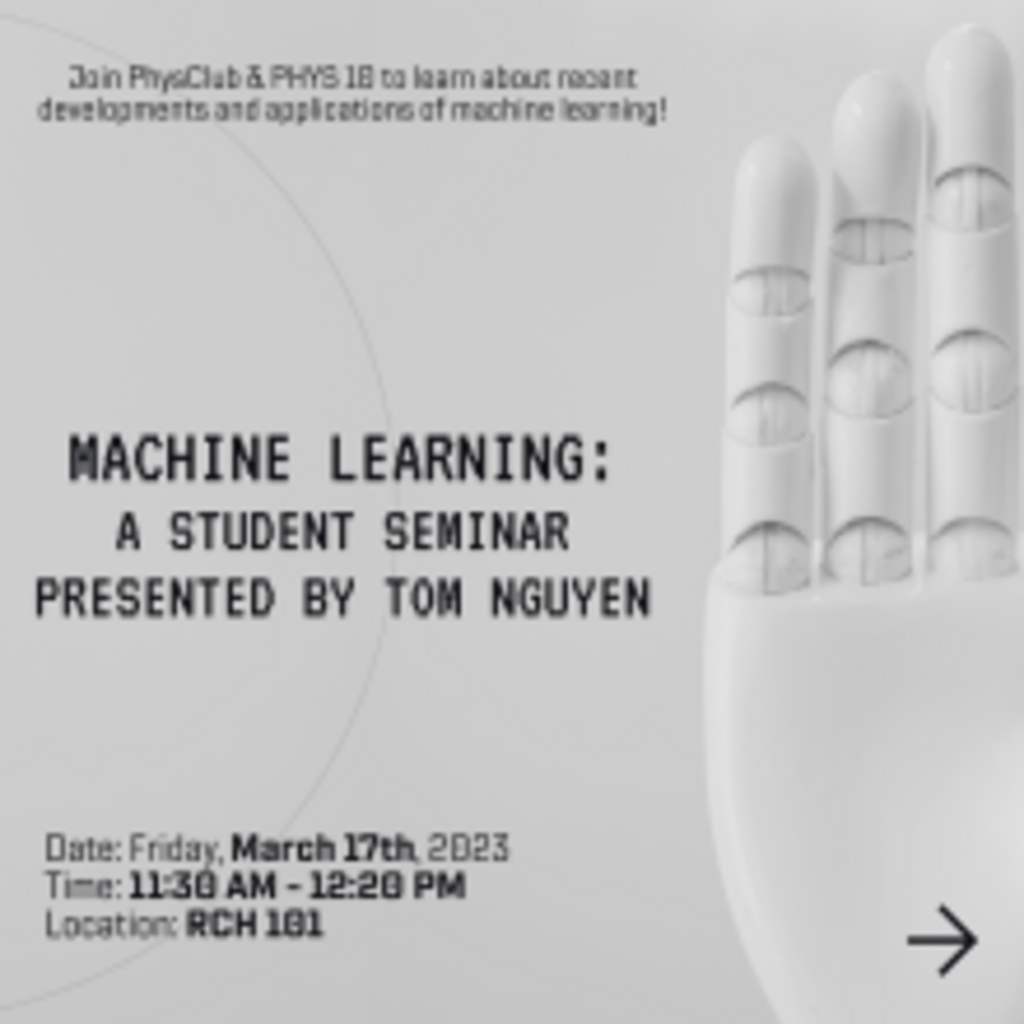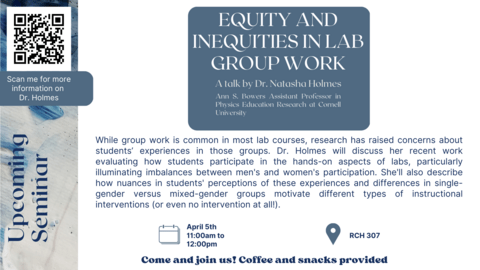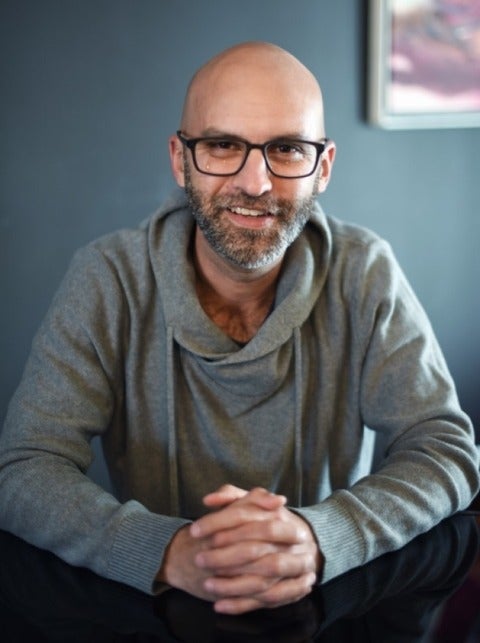Phys 10 Undergraduate Seminar
Student Seminar - Tom Nyugen, 2A Honours Physics
The field of machine learning has witnessed unprecedented growth and has been increasingly adopted by various industries to automate and optimize decision-making processes. In this presentation, we will explore the fundamental concepts and techniques in machine learning, including supervised and unsupervised learning.


